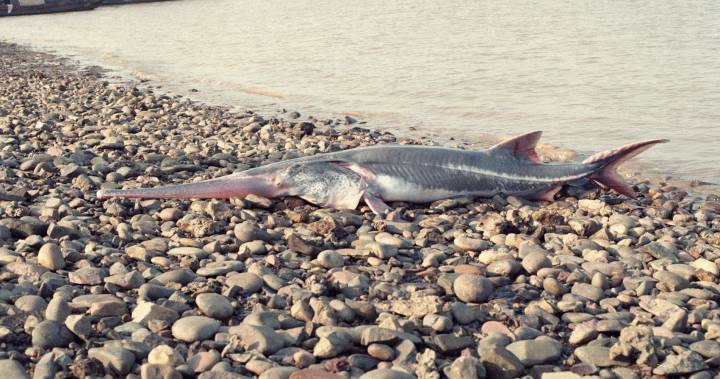
One of the world’s largest freshwater fish has just been declared extinct. The Chinese paddlefish, or Chinese swordfish, apparently succumbed to the overfishing, habitat fragmentation, and loss of biodiversity in its native Yangtze River. The researchers estimate that the fish became extinct at some point between 2005 and 2010. A paper on the matter, authored by scientists from the Chinese Academy of Fishery Sciences, the University of Kent, and the University of South Bohemia in the Czech Republic, has been published in the Science of The Total Environment, a peer-reviewed environmental science journal.
The Chinese paddlefish, with a lineage dating back at least 34 million years, could grow as long as 23 feet and weigh over several thousand pounds. Its populations began to decline drastically in the late 1970s as they were overfished for human consumption. The International Union for Conservation of Nature Red List of Endangered Species has listed them as “critically endangered” since the 1990s. The last live specimen was observed in 2003 and its population was estimated at less than 50 individuals in 2009.
Researchers conducting a year-long survey of the Yangtze River did not find a single specimen of paddlefish. “As no individuals exist in captivity, and no living tissues are conserved for potential resurrection, the fish should be considered extinct,” the paper said, referencing the criteria for inclusion on the IUCN Red List. Scientists say that two other species native to the river, the reeves shad and the Yangtze River dolphin (or baji), have also gone extinct.
The paddlefish’s extinction is the latest to cause researchers to voice concerns about the dangers of overfishing and habitat fragmentation. Sarah Uhlemann, an attorney with the U.S. nonprofit Center for Biological Diversity, commented, “The paddlefish is one of thousands of animals that will disappear in our lifetime if we don’t recognize the current extinction crisis. We have to care, we have to act, and we have to stop overfishing and habitat destruction or the world will be a much sadder place for our children.”
